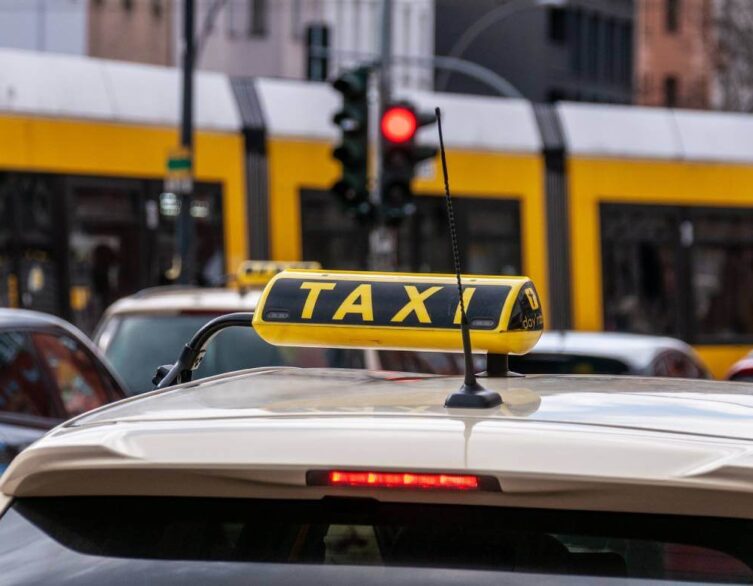Budapest Taxi Drivers Take to the Streets: A Major Protest Rocks the Hungarian Capital

Hundreds of yellow taxis filled Budapest’s most iconic locations today as drivers launched a massive protest against proposed changes to the city’s taxi regulations. The demonstration, which began at Heroes’ Square and extended to City Hall on Városház Street, represents one of the most significant taxi industry protests in recent years.
Understanding the Core of the Conflict
The catalyst for today’s demonstration stems from proposed amendments to Budapest’s 2013 taxi ordinance that taxi drivers say were developed without proper consultation. The draft regulation includes several controversial changes that have sparked widespread opposition across the industry.
Kiss Ádám, president of the Taxi Drivers’ Interest Protection Organization, expressed strong criticism of the proposed changes, describing them as “shocking and infuriating” because most provisions were created without serving taxi drivers’ interests. The organization argues that city officials made decisions affecting the profession without adequate input from those who would be most impacted.
The proposed amendments would introduce stricter rules for card payment beneficiaries, affect passenger-side applications, grant Budapest Transport Center (BKK) access to ordered ride data, require more detailed registration of drivers and vehicles, and mandate displaying driver names prominently.
What Taxi Drivers Are Fighting For
The protesters’ demands center on several key issues that have been building frustration within the industry. Most prominently, drivers are seeking fare increases that they argue are long overdue given rising inflation and operational costs.
Best deals of Budapest
Specifically, the taxi organizations are demanding a minimum fare increase to 1,400 Hungarian forints per ride, up from the current base fare of 1,100 forints. They also want the per-kilometer rate increased to 560 forints from 440 forints, and the per-minute waiting charge raised to 140 forints from 110 forints.
Beyond fare increases, drivers are calling for limitations on the number of taxi licenses issued in Budapest, similar to measures implemented in other major Hungarian cities like Győr and Debrecen. They argue that the current system allows too many drivers on the roads, reducing available work for professional operators.
The protesters also expressed frustration that illegal transportation providers continue operating without consequences while legitimate taxi services face increasingly strict regulations. This double standard, they argue, undermines fair competition in the transportation market.
Political Drama Behind the Scenes
The taxi regulation debate has sparked significant political controversy, with various city officials and political figures weighing in on the proposed changes. Dávid Vitézy, leader of the Podmaniczky Movement, highlighted particular concerns about data privacy requirements that would force taxi drivers to share complete address information for every ride within 24 hours.
Initially, the proposal also included provisions for revoking taxi licenses after any traffic violation, which critics argued was excessively harsh and could destroy drivers’ livelihoods over minor infractions. Following pressure from various quarters, Mayor Gergely Karácsony submitted last-minute amendments that eliminated the mandatory data sharing requirement and changed the penalty threshold from zero to eight penalty points.
These political maneuvers demonstrate the complex dynamics at play, with city leadership attempting to balance regulatory oversight with industry concerns while managing public pressure from organized demonstrations.
The Broader Context of Budapest’s Taxi Industry
Today’s protest builds on a pattern of taxi industry activism that has characterized Budapest in recent years. In January 2025, approximately 200 taxi drivers held a similar demonstration at Heroes’ Square, focusing primarily on taxation issues and calling for increases to tax-exempt income thresholds.
The taxi industry in Budapest operates under a regulated fare system, with official rates set by municipal authorities. All legitimate taxis must display yellow coloring, company logos, and clear fare information to help tourists and locals identify authorized services.
Current regulations mandate that legitimate taxi services follow standardized pricing: a base fare of 1,100 forints, 440 forints per kilometer, and 110 forints per minute for waiting time or slow traffic. These rates haven’t kept pace with inflation, according to industry representatives who argue that operational costs have increased significantly while fares remain static.
Impact on Tourists and Transportation
For foreign visitors to Budapest, today’s demonstration highlights ongoing tensions within the city’s transportation sector that could affect travel experiences. The taxi industry serves as a crucial component of Budapest’s tourism infrastructure, providing convenient transportation for international guests navigating the city.
The protest locations – Heroes’ Square and City Hall area – are both significant tourist destinations, potentially causing disruptions for visitors exploring these historic sites. However, the demonstration also underscores broader issues of service quality and fair pricing that ultimately affect tourist experiences with Budapest’s taxi services.
Tourism-focused websites have noted that taxi scams targeting foreign visitors remain a persistent problem in Budapest, with some drivers exploiting tourists through overcharging and route manipulation. The current regulatory reform attempts to address these issues through enhanced oversight and transparency measures.
Looking Ahead: What This Means for Budapest
The outcome of today’s demonstration and the ongoing regulatory debate will likely shape Budapest’s taxi industry for years to come. The drivers have made it clear that if their demands aren’t addressed, they’re prepared to escalate their protest tactics.
The tension between regulatory oversight and industry autonomy reflects broader challenges facing urban transportation systems across Europe. Budapest’s approach to balancing tourist protection, driver livelihoods, and technological innovation in taxi services could serve as a model for other major European cities facing similar challenges.
As the protest continues throughout the day, all eyes will be on how city officials respond to the drivers’ demands and whether meaningful dialogue can emerge from today’s dramatic demonstration in the heart of the Hungarian capital.
Related news














